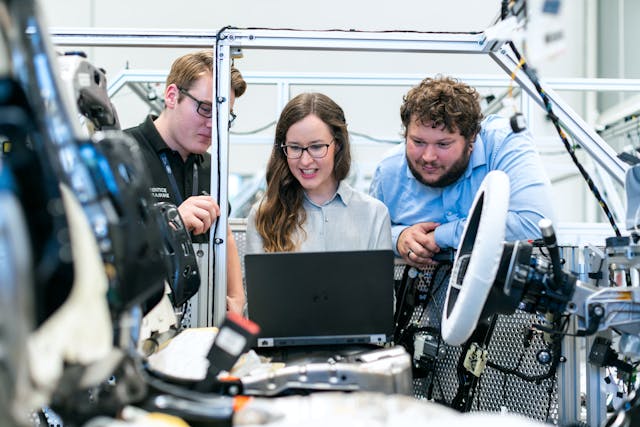In recent years, there has been a significant shift in the automotive industry towards eco-friendly practices and technologies. This transformation is not merely a trend but a fundamental redefinition of the industry’s priorities. With concerns about climate change and environmental sustainability on the rise, consumers are increasingly demanding greener alternatives. As a result, eco-friendly automotive companies are emerging as leaders in this new era, reshaping the landscape of the automotive industry.
The Driving Forces Behind Eco-friendly Automotive
Several factors are driving the rise of eco-friendly automotive technologies. Firstly, growing environmental awareness has led to greater concern about the carbon footprint of traditional gasoline-powered vehicles. This concern is exacerbated by the detrimental effects of greenhouse gas emissions on the planet’s climate.
Secondly, advancements in technology have made eco-friendly alternatives more viable and accessible. Electric vehicles (EVs), hybrid vehicles, and fuel-cell vehicles are now becoming increasingly mainstream, thanks to innovations in battery technology, charging infrastructure, and manufacturing processes.
Furthermore, stringent government regulations and emission standards are compelling automakers to invest in cleaner technologies. Countries around the world are implementing policies to incentivize the adoption of eco-friendly vehicles and penalize high-emission vehicles, further accelerating the transition towards greener transportation.
The Emergence of Eco-friendly Automotive Companies
In response to these trends, a new breed of automotive companies is emerging, dedicated to producing environmentally sustainable vehicles. These companies prioritize eco-friendly technologies and sustainable practices throughout their operations, from design and manufacturing to distribution and end-of-life disposal.
One notable example is Tesla Inc., renowned for its electric vehicles that offer zero-emission transportation without compromising on performance or style. Tesla’s success has not only proven the viability of electric vehicles but has also catalyzed innovation and competition within the industry.
Other automakers, both established players and startups, are also making significant investments in eco-friendly technologies. Companies like Toyota, Nissan, and BMW have expanded their offerings to include hybrid and electric models, while startups like Rivian and Lucid Motors are pushing the boundaries of electric vehicle design and performance.
Connectivity and Smart Mobility Solutions
In addition to sustainability, connectivity and smart mobility solutions are reshaping the automotive industry, enabling more efficient and convenient transportation options. From connected vehicles with advanced telematics systems to ride-sharing and car-sharing platforms, technology is driving greater connectivity and accessibility in urban mobility. These innovations not only reduce traffic congestion and emissions but also enhance the overall efficiency and sustainability of transportation networks.
The Impact on the Automotive Industry
The rise of eco-friendly automotive technologies is reshaping the traditional automotive industry in profound ways. Firstly, it is challenging the dominance of internal combustion engine (ICE) vehicles, which have long been the standard choice for consumers. As EVs become more affordable and infrastructure improves, they are poised to become the preferred option for many drivers.
Secondly, eco-friendly automotive technologies are driving innovation and competition within the industry. Automakers are investing heavily in research and development to improve battery efficiency, increase driving range, and reduce charging times. This innovation is not only benefiting consumers but also spurring economic growth and job creation in related industries.
Conclusion
The rise of eco-friendly automotive technologies represents a paradigm shift in the automotive industry, with profound implications for the future of transportation. By prioritizing environmental sustainability and investing in cleaner technologies, automakers are not only meeting consumer demand but also driving positive change on a global scale. As eco-friendly vehicles continue to gain traction and become more accessible, they have the potential to revolutionize the way we think about mobility and pave the way towards a greener, more sustainable future.


